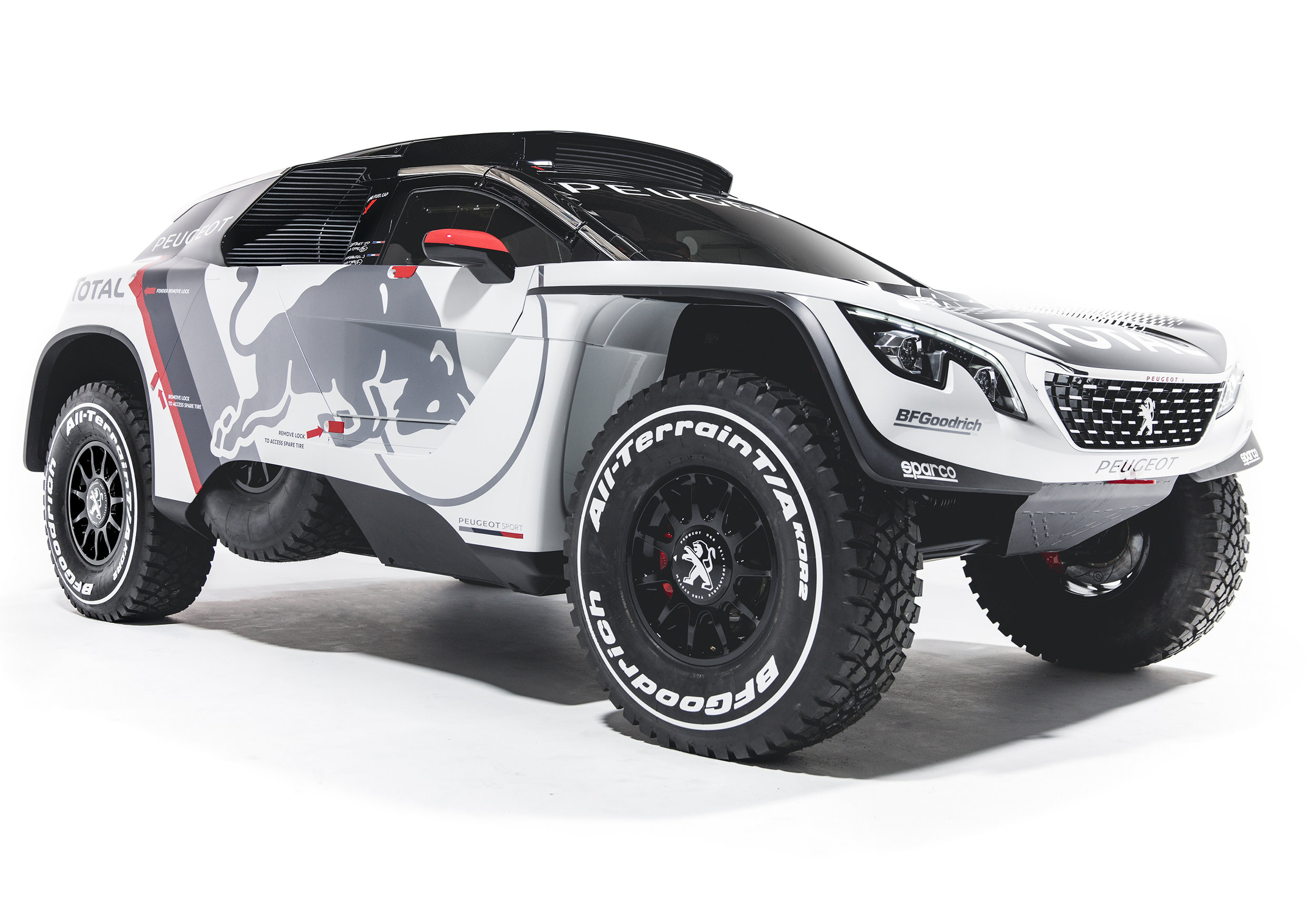
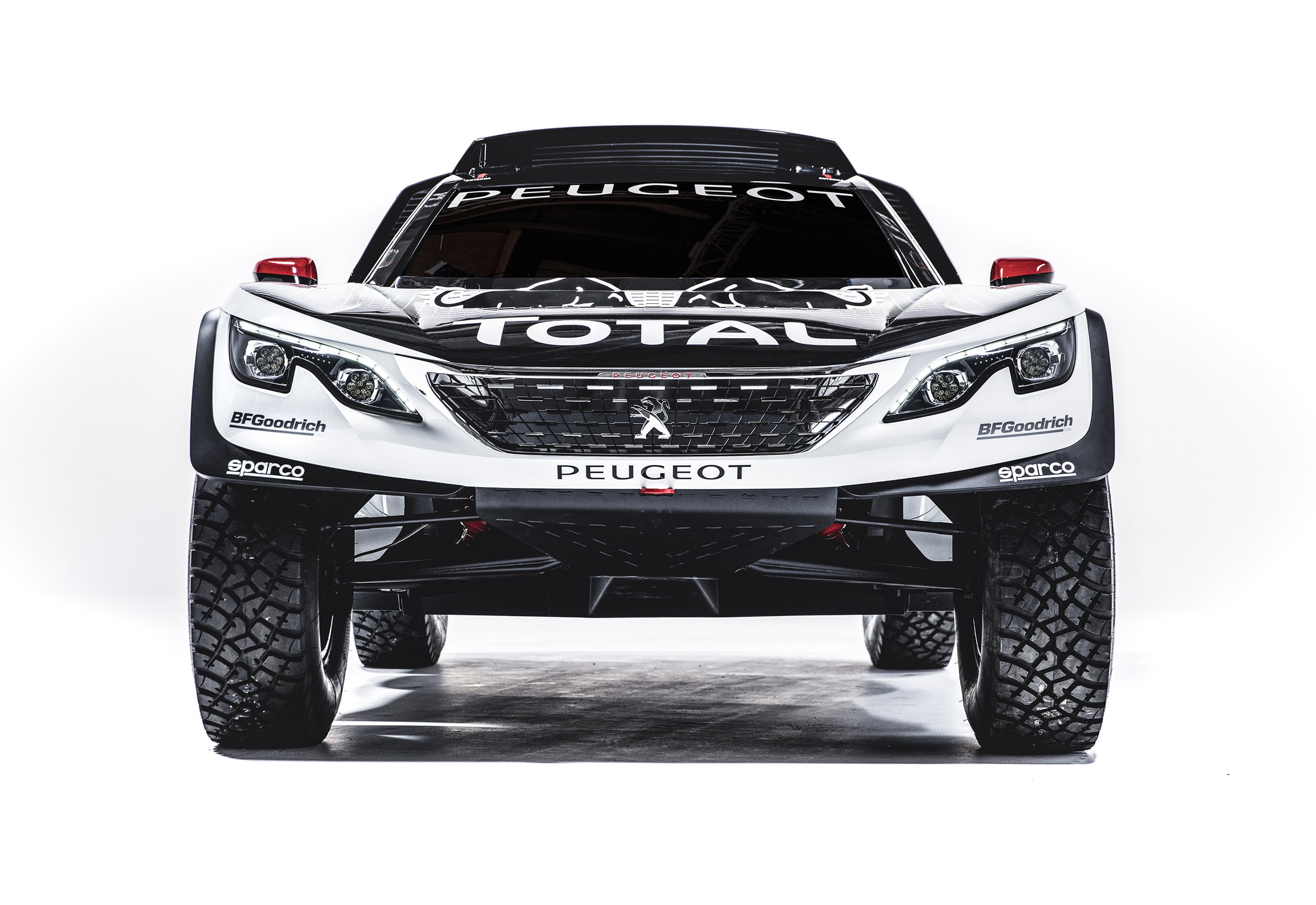
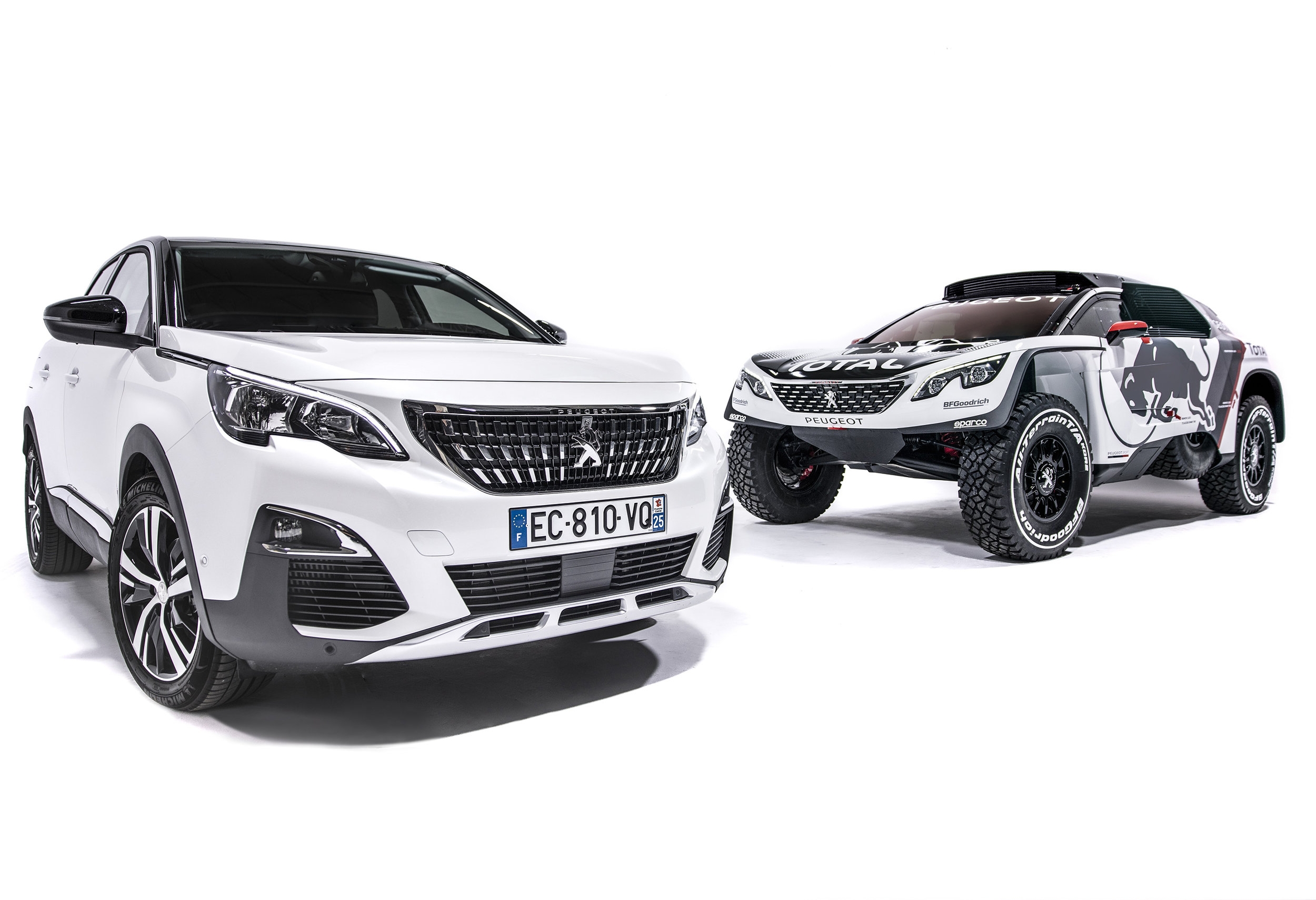
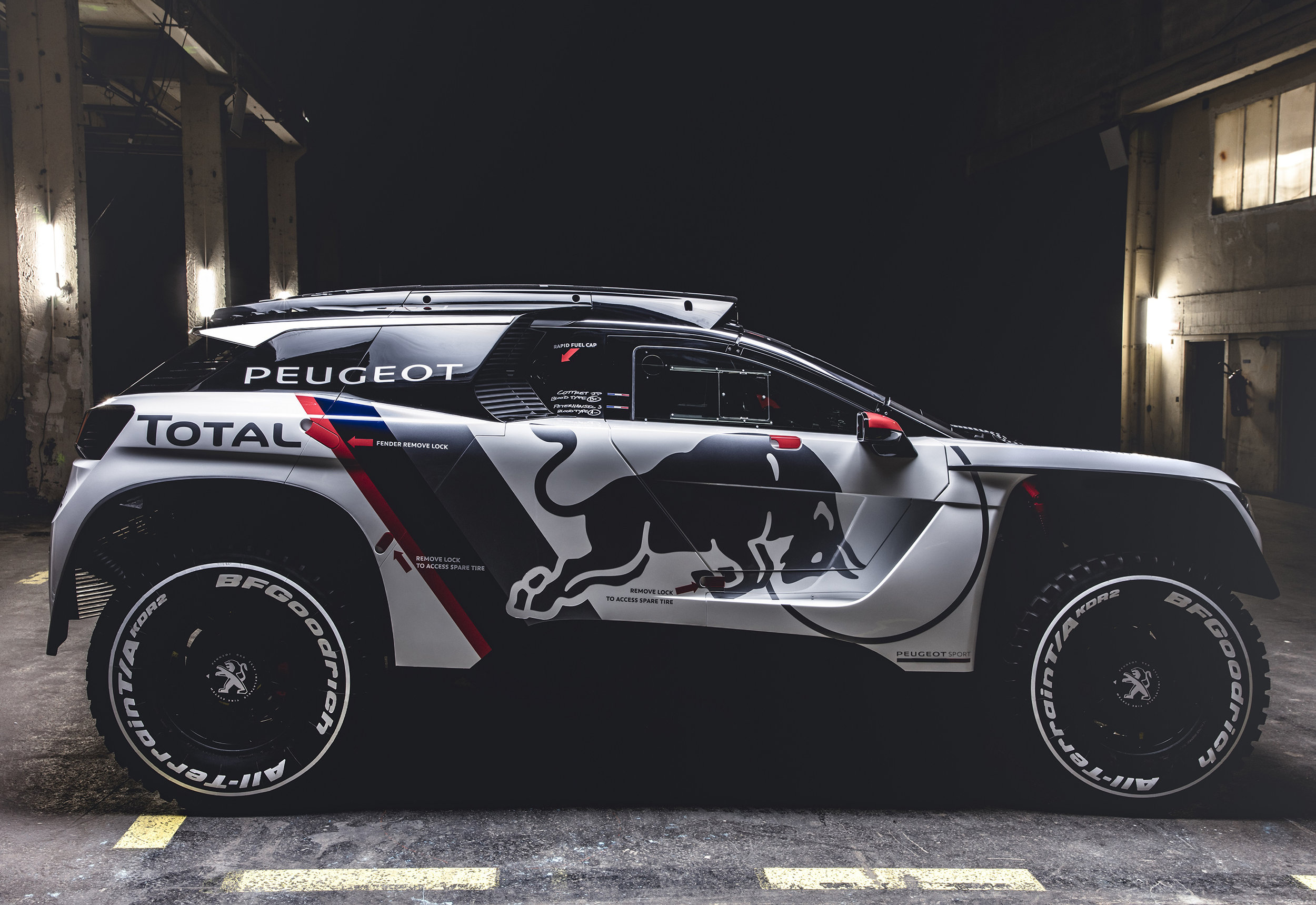
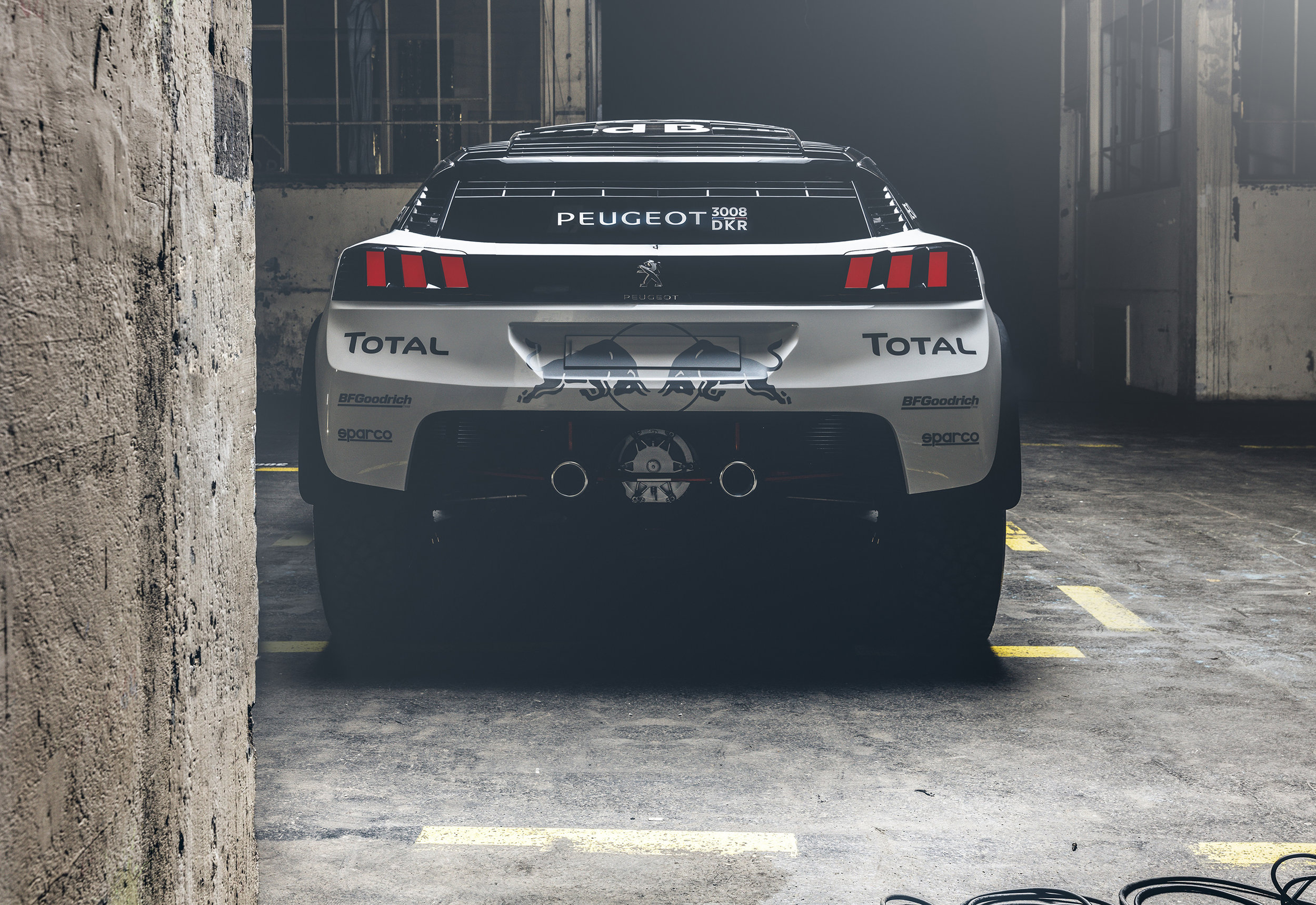
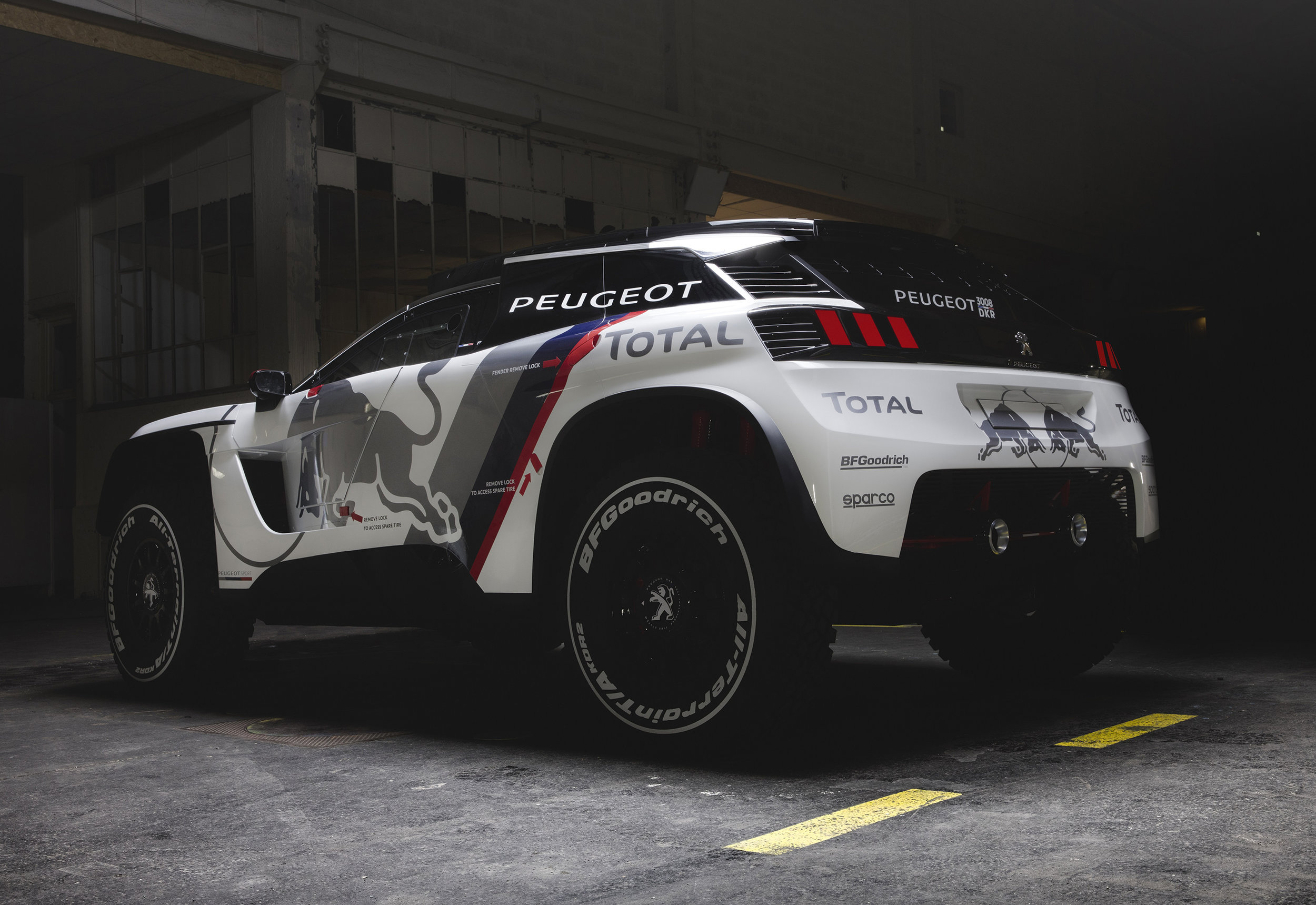
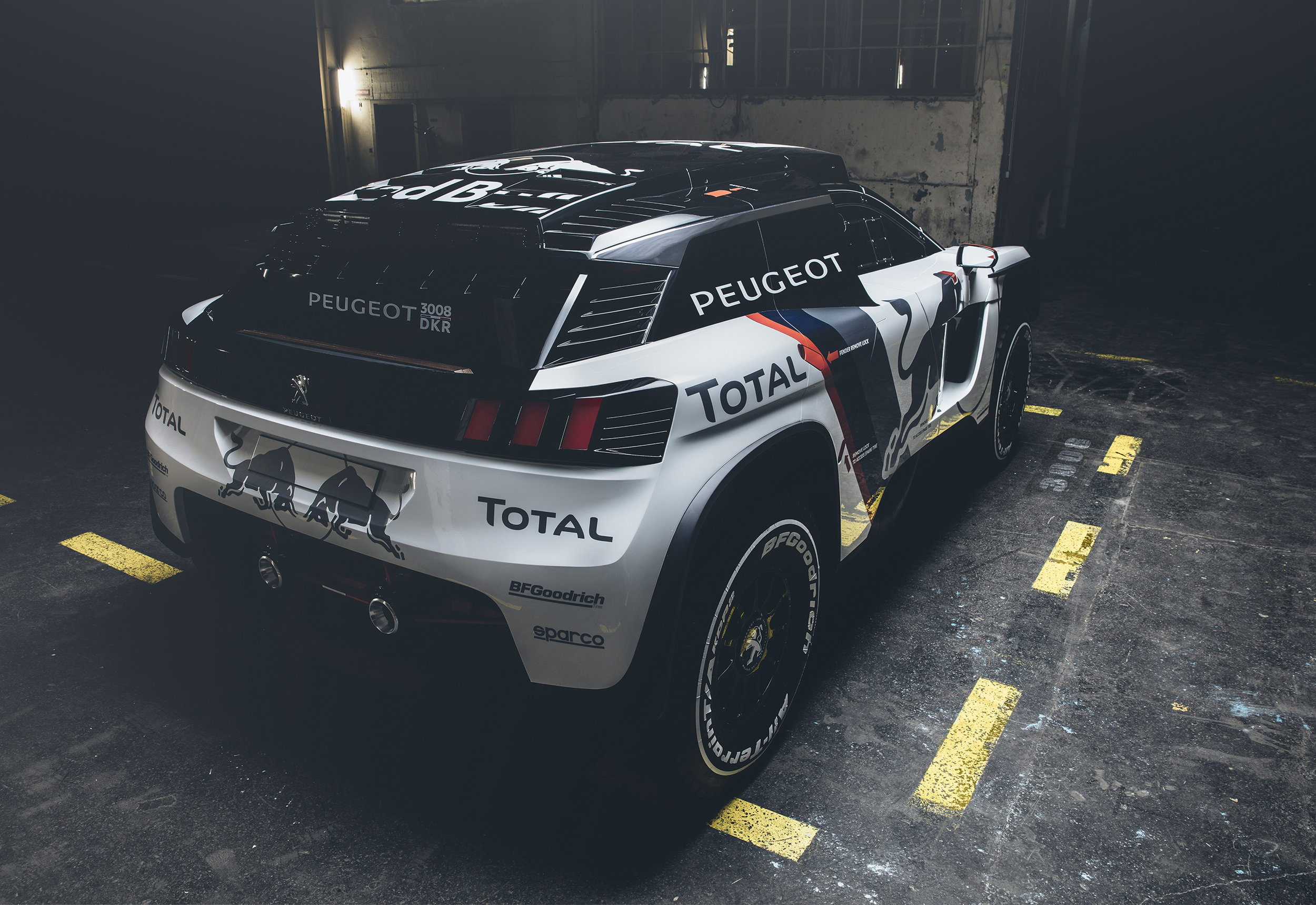
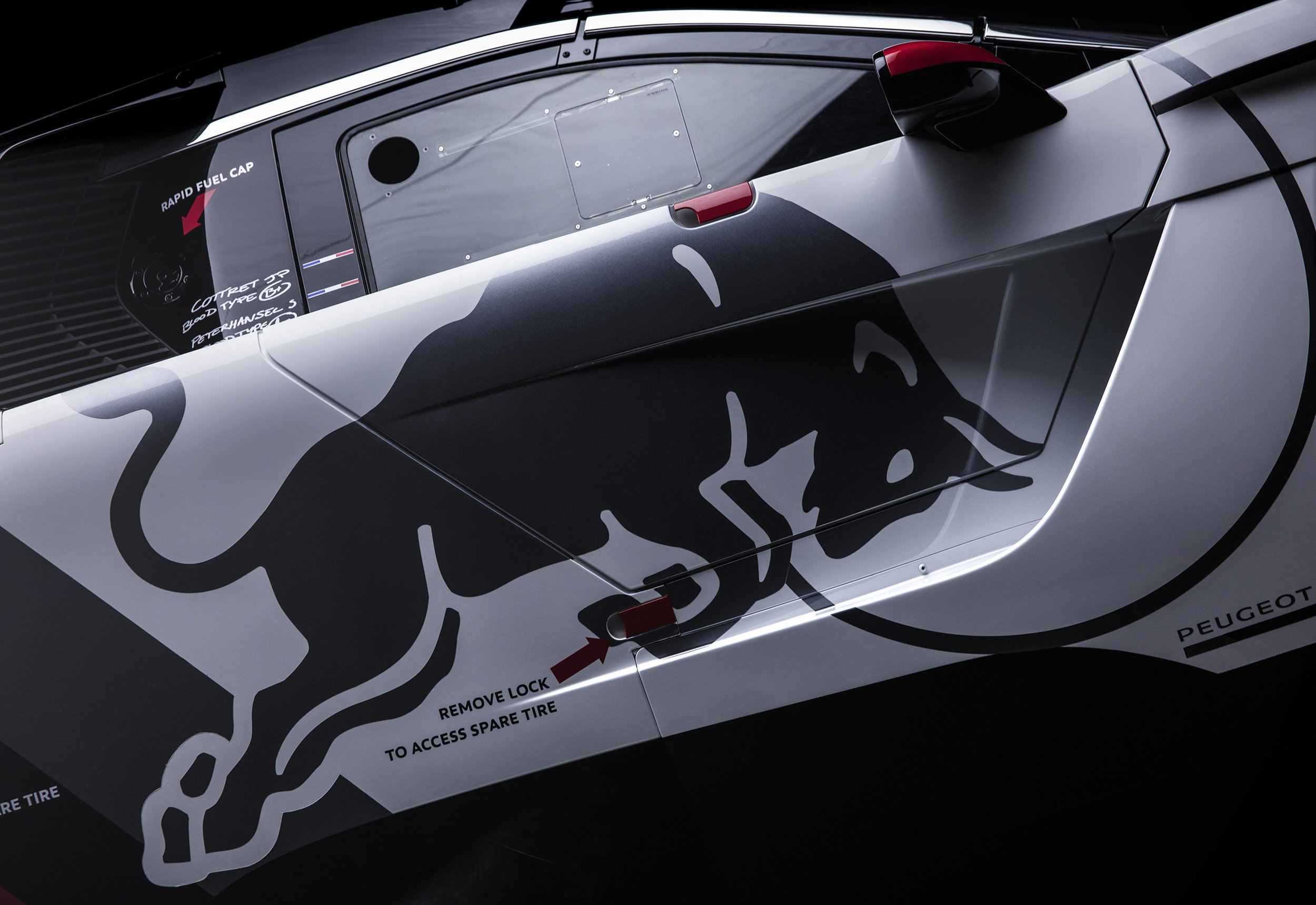
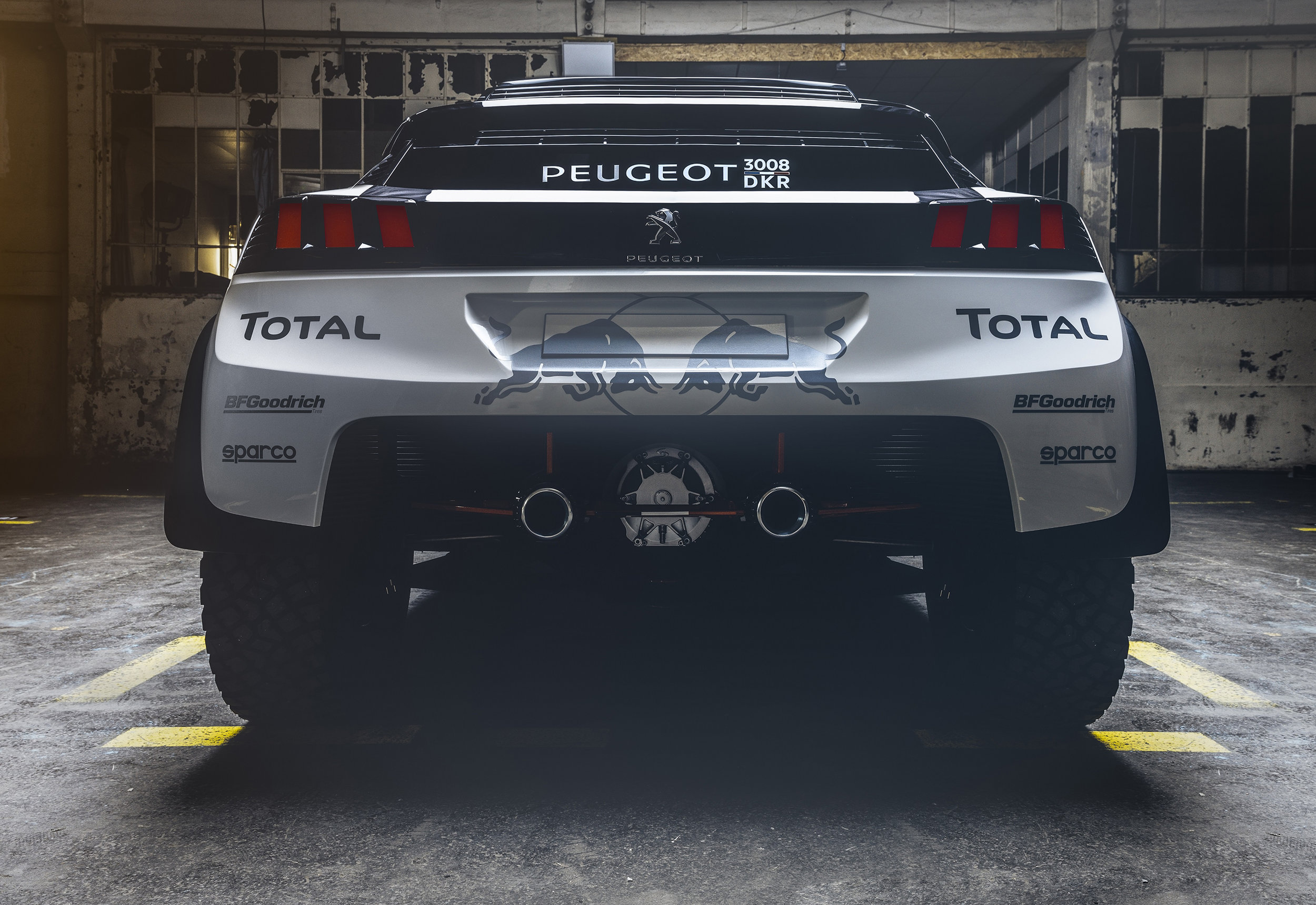
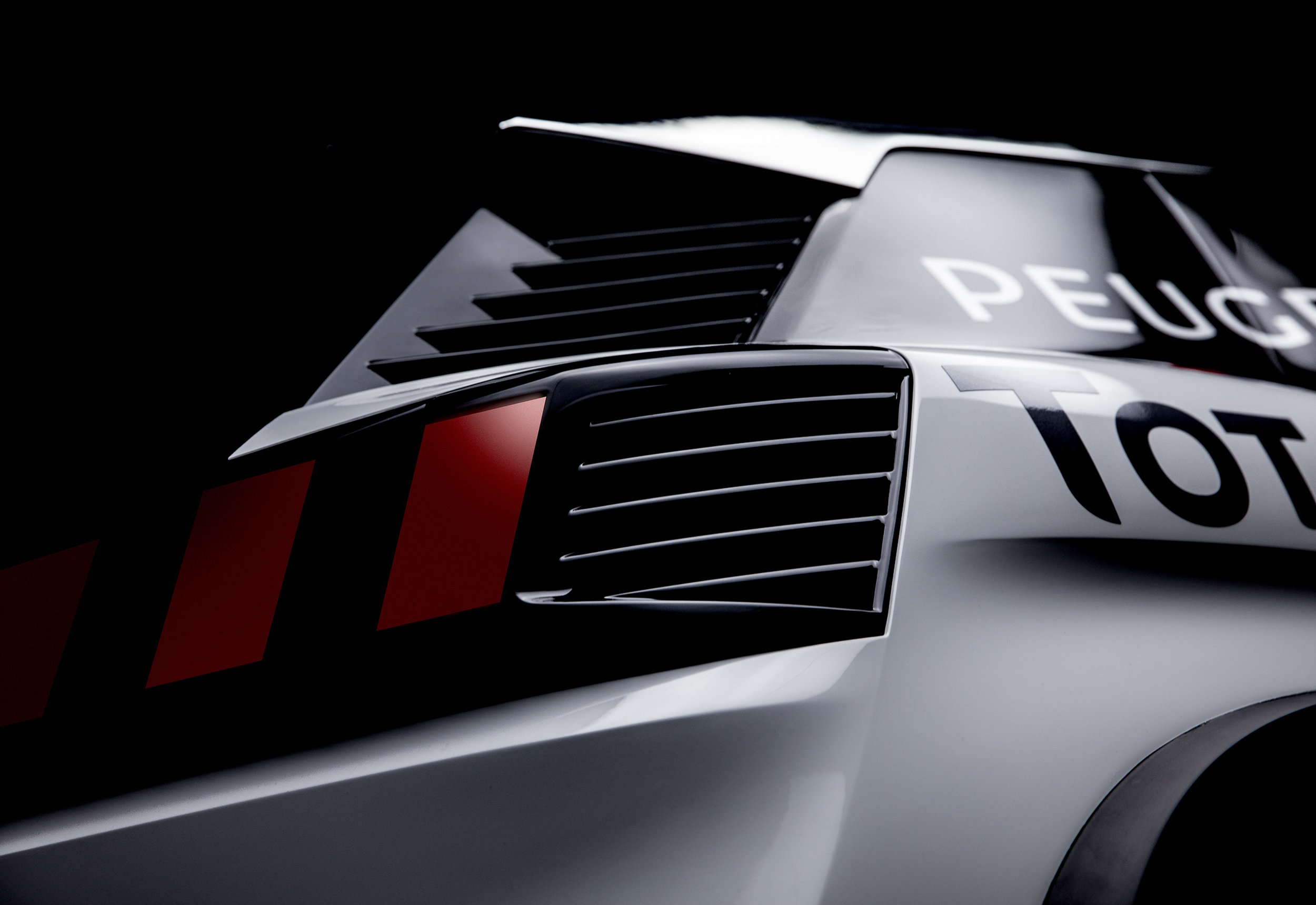

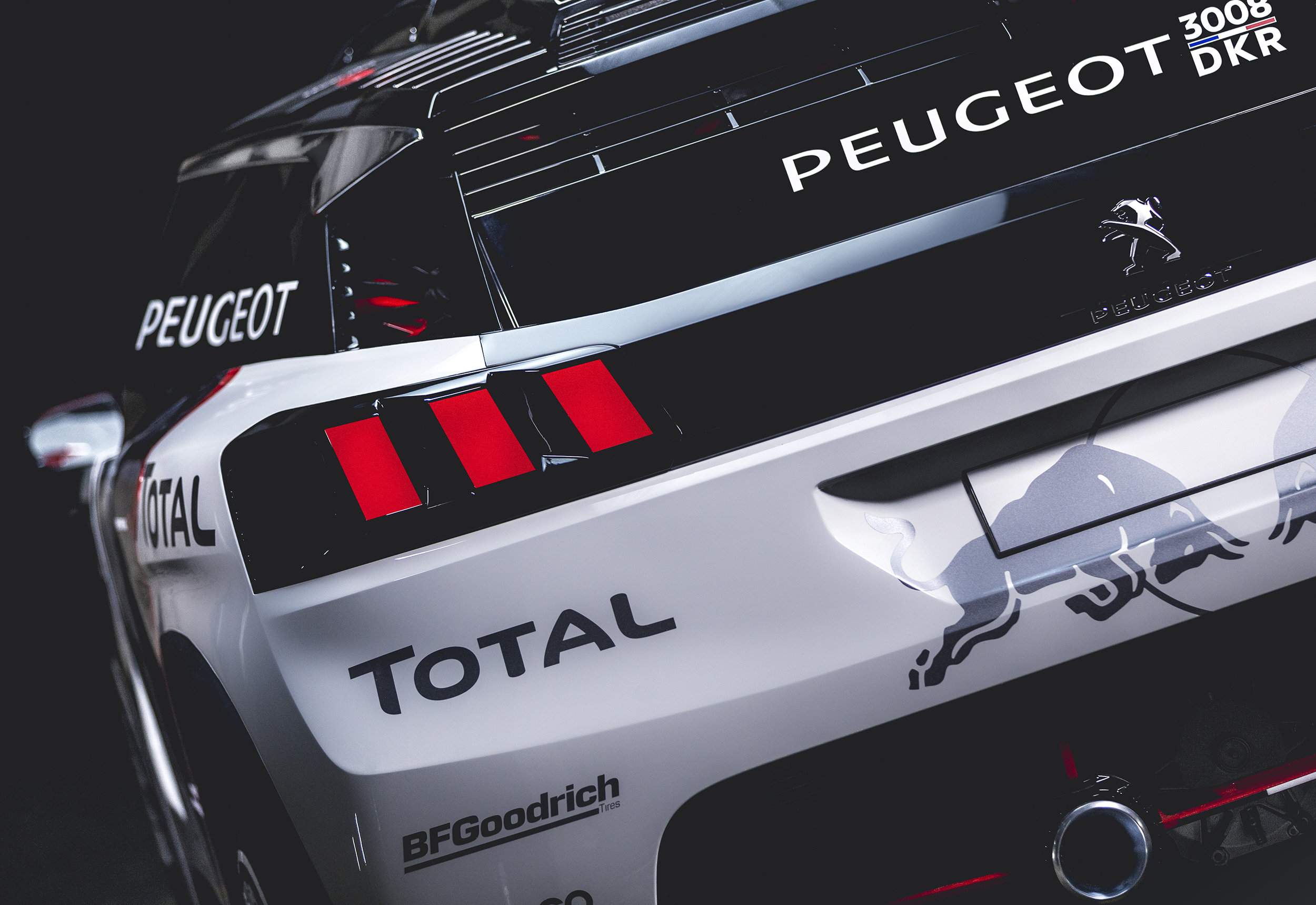
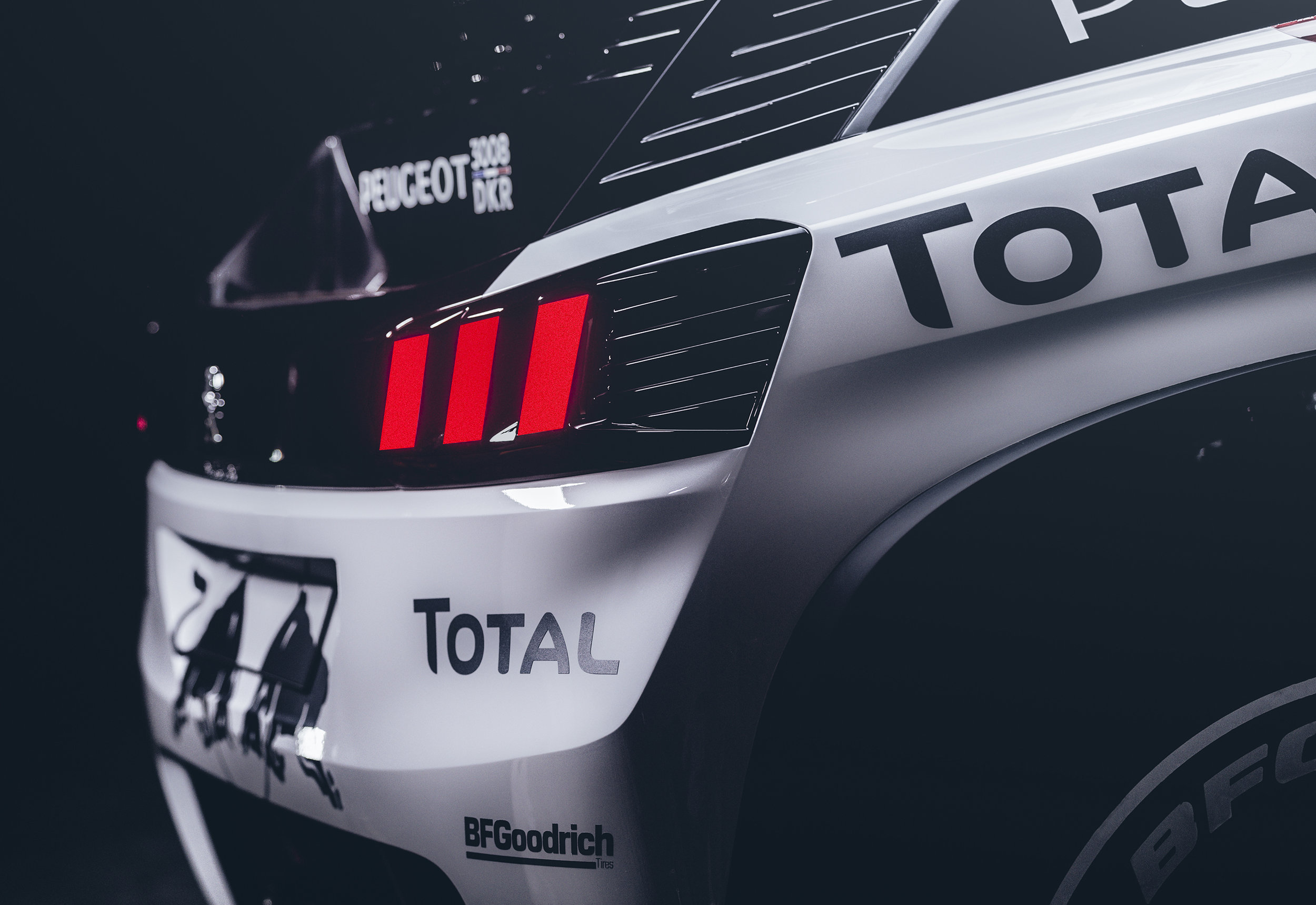
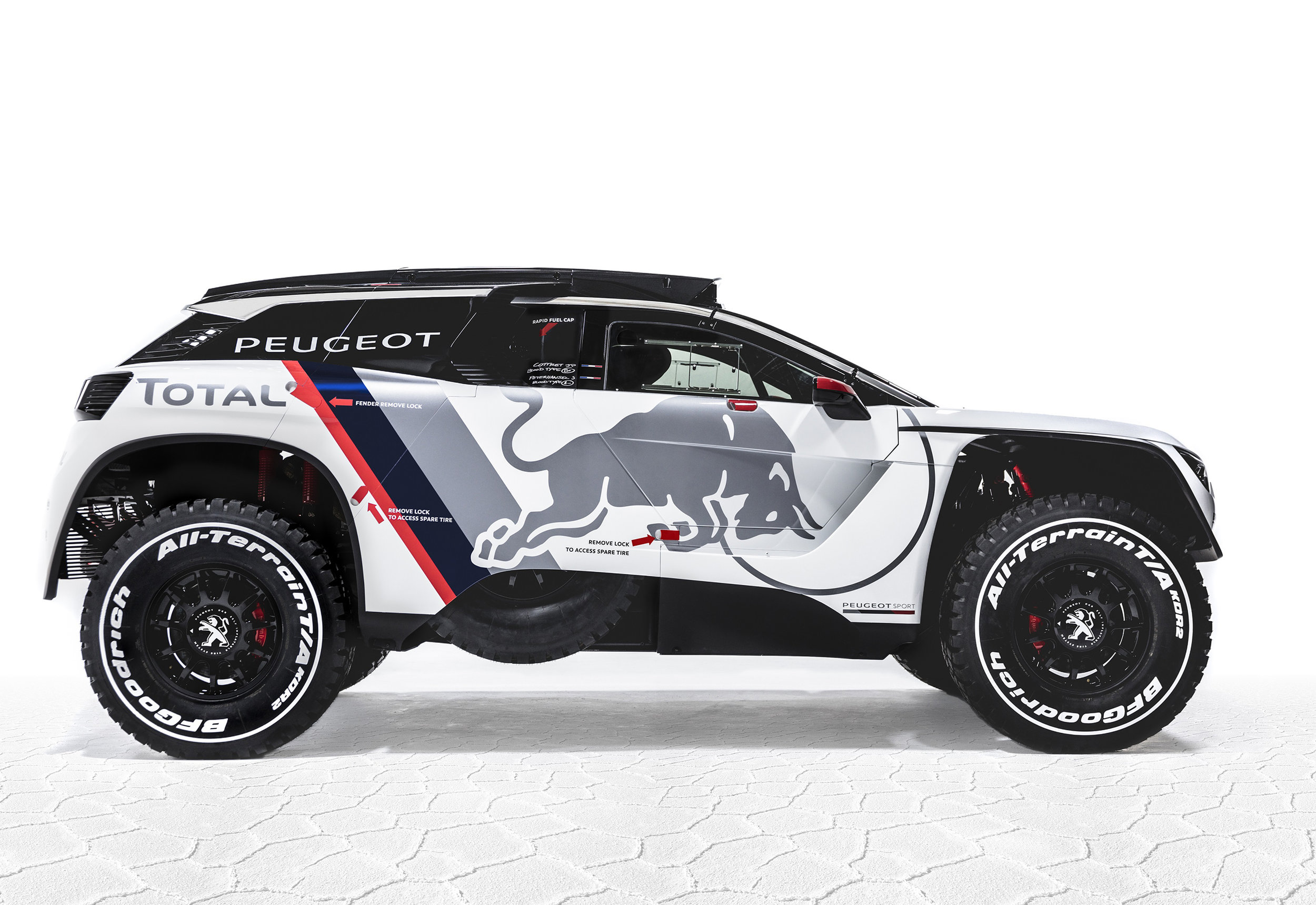
Team Peugeot Total and Red Bull have revealed their new Dakar Rally challenger – the 3008 DKR.
The all-new 3008 DKR is based on an entirely new model of Peugeot SUV, to be revealed at the Paris Motor Show next month. The new production 3008 forms the inspiration for the latest evolution, following the company's return to Dakar after 25 years in 2015.
The new 3008 DKR also remains loyal to Peugeot's two-wheel drive philosophy, with the first Dakar win for a two-wheel drive car in 15 years nine months ago proving that you don't necessarily need four wheel drive to conquer the toughest landscapes in the world.
"The new 3008 symbolises the next step," said team director Bruno Famin. "Our goal with this car was to take the weaker points of the existing car and make them stronger, while capitalising on all the existing strengths to improve them still further. There are also some new regulations, which we obviously needed to comply with."
The Dakar car's dimensions and features are governed by technical rules laid down by the sport's governing body, but it keeps the design language of the road car, transporting it into a rally context with ‘aggressive lines’. The 3008 DKR improves on its predecessor in key areas.
While the previous car was durable enough to win the Dakar and claim nine stages (including seven one-twos), the reliability has been improved as, in any competition, Peugeot says there is always room to improve on reliability. Engineers went through every aspect of the car in fine detail in order to refine the package still further, focussing both on mechanical strength and also complex electronic processes, such as engine management. The Dakar is the toughest race in the world, taking in 10,000 kilometres at high speeds and altitudes, which makes it the ultimate test of reliability for any machine.
The French brand also says it took ‘huge steps’ forward in terms of driveability ensuring that the car's 3.0-litre V6 twin-turbodiesel engine is even more driveable for next year's Dakar, delivering greater torque at lower revs. Adding to the challenge for the engineers is the fact that the latest Dakar regulations have imposed a smaller restrictor on the engine (38mm as opposed to 39mm last year) with a net loss of around 20 horsepower. However, this power is now accessible from further down the rev range, meaning that the car is easier to drive and potentially even faster.
The suspension has also been uprated as it is one of the key elements to success on the Dakar, governing just how quickly the car can cover the ever-changing untrammelled terrain that is the hallmark of the rally. Ranging from salt flats, to WRC-style gravel roads, to sand dunes, the new 3008 DKR has received further work on the geometry and dampers.
Peugeot Sport will be now be aiming for the sixth Dakar win in its history, with last year's triumph coming on top of four wins on the Dakar in Africa between 1987 and 1990. Before the Dakar itself, Carlos Sainz will test the 3008 DKR in race mode against other Dakar competitors and Cyril Despres in the Peugeot 2008 DKR, during Morocco's Rally in October (October 3rd to 7th).
